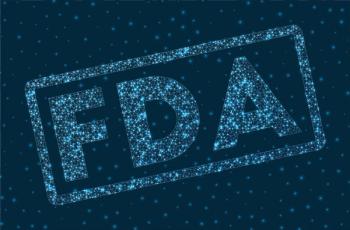
Veterans Day, PTSD, and Me
Key Takeaways
- Veterans Day highlights the trauma experienced by the "Great Generation" and subsequent generations affected by war, emphasizing the evolution of PTSD understanding.
- The author reflects on personal experiences as a veteran and psychiatrist, underscoring the importance of addressing PTSD and moral injury in war-affected individuals.
This Veterans Day, explore the lasting impact of trauma on veterans and the importance of addressing PTSD in our communities.
DragonImages_AdobeStock
PSYCHIATRIC VIEWS ON THE DAILY NEWS
Today is Veterans Day, honoring our military.
I am a veteran, but in a terrible paradox, I owe my life to my father joining the Army late in World War II. He joined as a lawyer, already in his mid 30s. Being stationed in Dayton, Ohio, he met my mother at an army social event. Though she was not supposed to have children due to mitral valve damage from rheumatic fever, I was born not long after the war, as well as my sister 6 years later.
It only became all too obvious to me that I was sort of a child of the Holocaust. The belated insight came when I discussed the movie “Children of the Holocaust” at our Jewish Community Center about a decade ago. I concluded then that I would have to dedicate myself even more to preventing anything like the Holocaust again.
Over time, realization emerged that the “Great Generation” who fought in the war suffered a great amount of trauma and posttraumatic stress disorder (PTSD). Of course, the citizens and their children who were adversely affected by the war were also vulnerable to the trauma. The trauma involved happens in any war, but it took until the late 1970s to better understand PTSD, formerly known as “shell shock.” This past Sunday morning on our favorite TV show of the same name, a segment was dedicated to a new book on trauma and the “Great Generation” for the public.1
For some time, I had wondered why I chose to serve rather than obtain a likely conscientious objector status during medical school while the Vietnam War was on. At the last minute, I applied and got into a program that delayed my serving until my psychiatric training was over. It so happened that both the war ended and my training began at the same time, so I ended up serving in Anniston, Alabama. I then started to treat soldiers who suffered trauma and treating trauma became a clinical specialty as time went on, even as I gradually experienced secondary trauma myself from the empathy required. Despite wanting to prevent war, it became such a meaningful experience to serve my country, regardless of who is President, that I get tearful at any military-related event, like the one we will attend today.
Given the wars that are still going on, it behooves national and international psychiatry to prepare for the slow, but sure, PTSD and moral injury emergence in those directly traumatized, especially children, and the ripples out to the public, citizens, and psychiatrists who may experience secondary trauma as well as moral and compassionate concerns.
Dr Moffic is an award-winning psychiatrist who specialized in the cultural and ethical aspects of psychiatry and is now in retirement and retirement as a private pro bono community psychiatrist. A prolific writer and speaker, he has done a weekday column titled “Psychiatric Views on the Daily News” and a weekly video, “Psychiatry & Society,” since the COVID-19 pandemic emerged. He was chosen to receive the 2024 Abraham Halpern Humanitarian Award from the American Association for Social Psychiatry. Previously, he received the Administrative Award in 2016 from the American Psychiatric Association, the one-time designation of being a Hero of Public Psychiatry from the Speaker of the Assembly of the APA in 2002, and the Exemplary Psychiatrist Award from the National Alliance for the Mentally Ill in 1991. He presented the third Rabbi Jeffrey B. Stiffman lecture at Congregation Shaare Emeth in St. Louis on Sunday, May 19, 2024. He is an advocate and activist for mental health issues related to climate instability, physician burnout, and xenophobia. He is now editing the final book in a 4-volume series on religions and psychiatry for Springer: Islamophobia, anti-Semitism, Christianity, and now The Eastern Religions, and Spirituality. He serves on the Editorial Board of Psychiatric Times.
Reference
1. Nasaw D. The Wounded Generation: Coming Home after World War II. Penguin Press; 2025.
Newsletter
Receive trusted psychiatric news, expert analysis, and clinical insights — subscribe today to support your practice and your patients.






